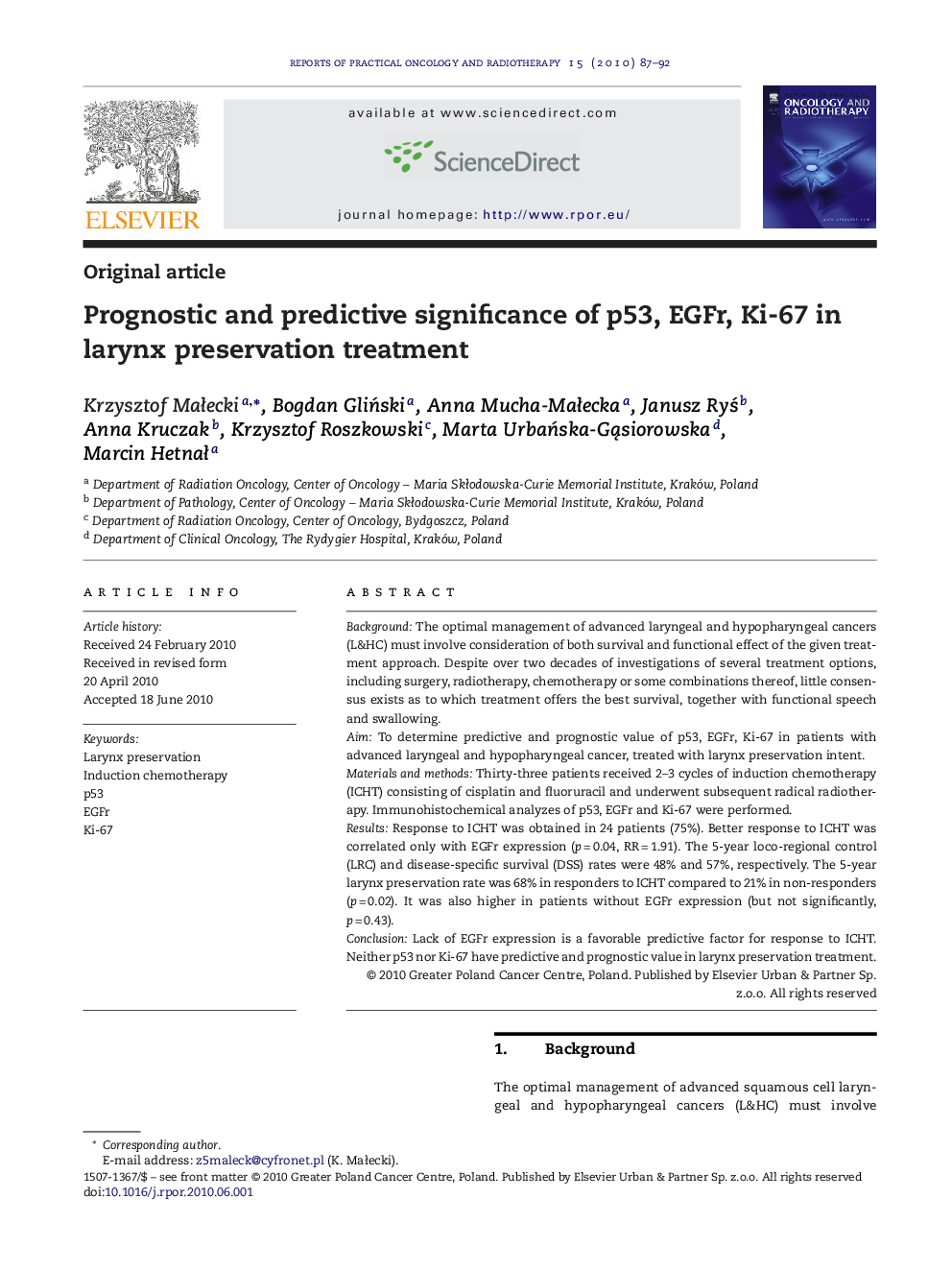| Article ID | Journal | Published Year | Pages | File Type |
|---|---|---|---|---|
| 1857143 | Reports of Practical Oncology & Radiotherapy | 2010 | 6 Pages |
BackgroundThe optimal management of advanced laryngeal and hypopharyngeal cancers (L&HC) must involve consideration of both survival and functional effect of the given treatment approach. Despite over two decades of investigations of several treatment options, including surgery, radiotherapy, chemotherapy or some combinations thereof, little consensus exists as to which treatment offers the best survival, together with functional speech and swallowing.AimTo determine predictive and prognostic value of p53, EGFr, Ki-67 in patients with advanced laryngeal and hypopharyngeal cancer, treated with larynx preservation intent.Materials and methodsThirty-three patients received 2–3 cycles of induction chemotherapy (ICHT) consisting of cisplatin and fluoruracil and underwent subsequent radical radiotherapy. Immunohistochemical analyzes of p53, EGFr and Ki-67 were performed.ResultsResponse to ICHT was obtained in 24 patients (75%). Better response to ICHT was correlated only with EGFr expression (p = 0.04, RR = 1.91). The 5-year loco-regional control (LRC) and disease-specific survival (DSS) rates were 48% and 57%, respectively. The 5-year larynx preservation rate was 68% in responders to ICHT compared to 21% in non-responders (p = 0.02). It was also higher in patients without EGFr expression (but not significantly, p = 0.43).ConclusionLack of EGFr expression is a favorable predictive factor for response to ICHT. Neither p53 nor Ki-67 have predictive and prognostic value in larynx preservation treatment.
